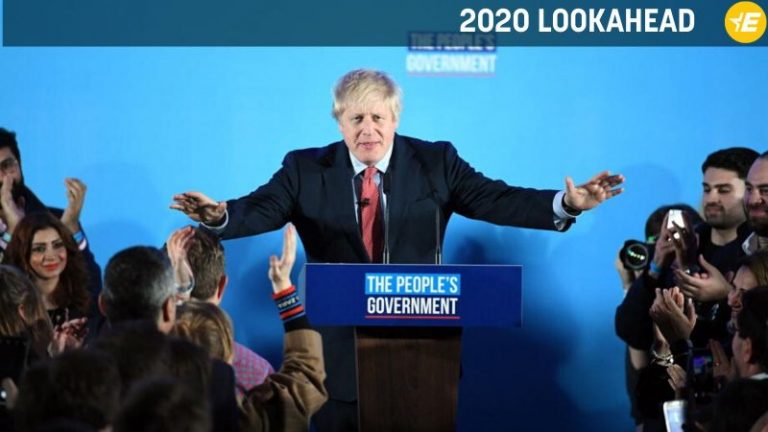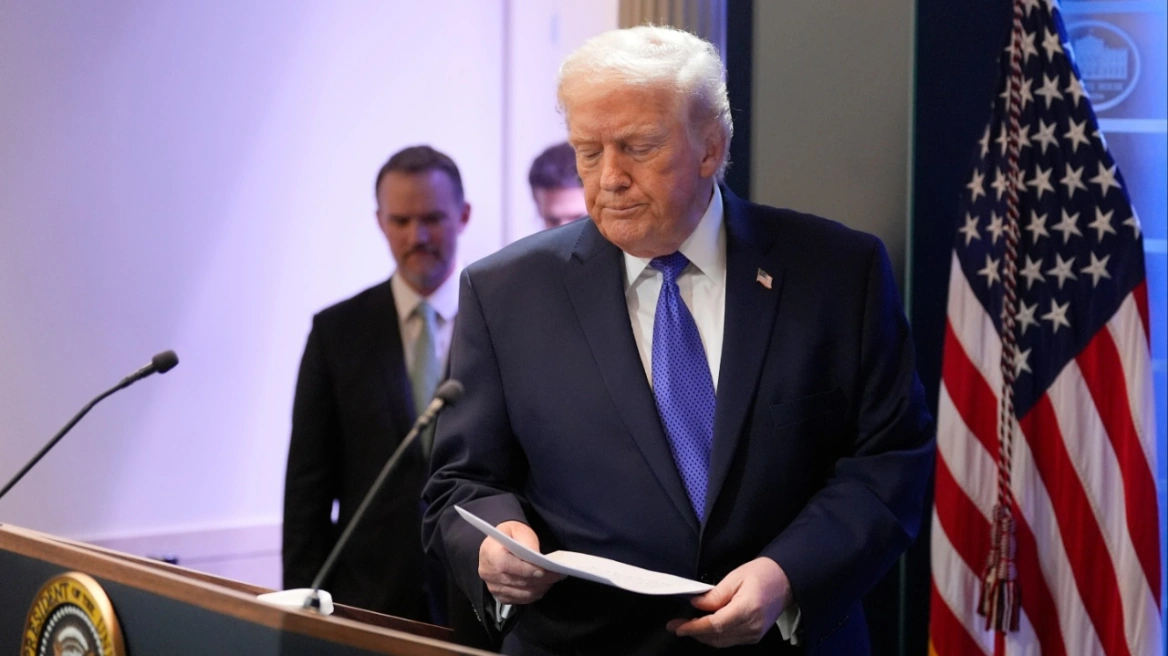After a year of political paralysis and frustration, Britons and Europeans end 2019 with a sense of closure, if not satisfaction. By giving Boris Johnson’s Conservatives a hefty 80 seat majority, December’s general election settled one thing for certain: the UK will leave the European Union by the end of January 2020.
But the Article 50 process – working out the divorce settlement – was always supposed to be the easy bit. In 2020, talks will focus on post-Brexit trade relations, with a tight timetable and the threat of a no-deal scenario at the end of the year. Some things don’t change.
Johnson takes control
Johnson’s 80 seat majority in the House of Commons gives him unfettered control over the post-Brexit trade negotiations which are set to begin in earnest in February.
Johnson has fewer of the democratic overheads that his predecessor Theresa May had to face; he has a big majority, and the Withdrawal Agreement Bill has stripped UK lawmakers of almost all the oversight over the post-Brexit trade negotiations.
Johnson does not need their support for or, indeed, to inform UK MPs about his negotiating mandate. Nor will they be given a ‘meaningful’ vote on the outcome.
Having passed its second reading in the Commons just before Christmas, the Withdrawal Agreement bill will sail through Parliament in mid-January. The UK will, finally, be out, though an eleven-month transition period, during which the UK will remain part of the single market, will immediately begin.
With Brexit done, at least formally, the prime minister wants to remove the word ‘Brexit’ from the government’s vocabulary. The Exiting the EU department will be scrapped at the end of January. Instead, Johnson is understood to be planning a negotiating team – called “Taskforce Europe” that will be responsible for negotiations on future relations, led by his advisor David Frost.
For the moment, the canvas of a Johnson trade deal is distinctly thin on detail though he has talked about future EU-UK relations being modeled on the Comprehensive Economic and Trade Agreement (CETA) between the EU and Canada.
The Tory manifesto, and Johnson’s pronouncements that he wants the UK to diverge from EU regulation, points towards a far looser relationship with the EU than the one envisaged in the political declaration agreed by Theresa May, which talked about building on customs arrangements and held out the prospect of significant regulatory alignment on goods.
While May’s government talked of participating in a range of EU agencies and programs, the Conservative election manifesto only mentions international science collaboration with the EU. In 2020, the UK government is likely to set up a series of new regulatory agencies to replace the existing EU ones, the clearest of hints at the direction of travel.
Read more: euractiv
Ask me anything
Explore related questions





